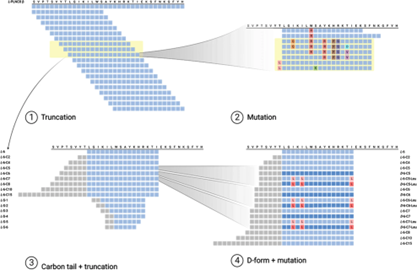Work package 4
A large number of non-healing wounds are infected with multidrug-resistant organisms (MDRO) and the alarming problems with antibiotic resistance prevent effective infection control in wound care. Hence, there is a great need for new strategies to treat infected non-healing wounds. Antimicrobial peptides (AMPs), which are host-defense molecules present in most multicellular organisms, have recently been shown to effectively inhibit skin and soft tissue pathogens and severalfold enhance the effects of antibiotics, without exerting cytotoxic side effects and are thus of large interest from the wound healing perspective.
The aim of work package 4 is to identify and develop novel peptide-based antimicrobial compounds with a broad spectrum of activity and potency to combat wound infections without harmful effects on human tissues. The ambition is to provide an antibacterial substance that acts jointly with the novel wound dressing materials to achieve optimal conditions for an efficient wound healing.
Antimicrobial design and synthesis and in vitro evaluation. We have developed short and optimized antimicrobial peptides based on the amino acid sequence of PLNC8 β by generating a small library of truncated sequences, each composed of 16 amino acid residues. We found that one of these truncated peptides, seq. #6, expresses inhibitory and bactericidal activity. Our lead compound displays effective, broad-spectrum activity against both gram-positive and gram-negative bacteria, including the ESKAPE* pathogens, and acts in a synergistic or additive manner together with antibiotics. In addition,the lead compound shows no hemolytic activity and expresses beneficial effects on different cells. The results are published in Scientific Reports:
Wiman, E., Zattarin, E., Aili, D., Bengtsson, T., Selegård, R., Khalaf, H. Development of novel broad-spectrum antimicrobial lipopeptides derived from plantaricin NC8 β. Scientific Reports 13, 4104 (2023).

A number of different strategies to functionalize both bacterial cellulose dressings and dressings prepared from TEMPO oxidized wood with bacteriocins have been developed. Physisorption of the peptides in the dressings is possible. Because of the large specific surface of the dressings and amphipathic nature of the peptides, considerable amounts of peptides can be adsorbed in the dressings. The effects of nanoparticle functionlized dressings on bacteriocin release is under investigation.
All HEALiX publications are found under “Publications” in the main menu.
Read more on the other work packages of HEALiX:
WP2 – Materials development and optimization
WP3 – Embedded wearable sensors
WP5 – Preclinical validation
WP6 – Clinical validation
* ESKAPE pathogens: Enterococcus faecium, Staphylococcus aureus, Klebsiella pneumoniae, Acinetobacter baumannii, Pseudomonas aeruginosa, and Enterobacter spp.
